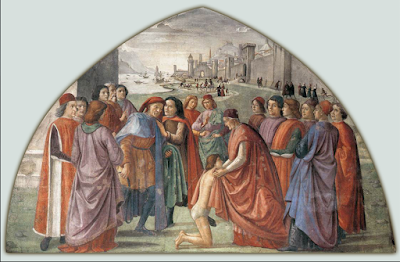Four Approaches to Francisco & Bernardo in Hamlet

FOUR APPROACHES to the names of sentinels Francisco & Bernardo at the opening of Shakespeare’s Hamlet: 1. Pay no attention to the names. Just enjoy. 2. Assume (as Joseph Ritson did, writing in 1783) that Shakespeare didn’t know his Latin or Italian well and sometimes chose such names randomly. This may imply permission to ignore these names (as in 1, above), but you can feel you’ve taken the playwright down a notch in the process, avoiding Bardolatry (à la Ritson). 3. Assume (as C. Elliott Browne did, writing in 1876) that these names point to two key assassins in the Pazzi conspiracy of 1478. The allusion therefore points to papal corruption and Machiavellian scheming, which could seem anti-Catholic, justifying England’s break from Rome. Scholars with a Protestant bias can feel self-satisfied with this one and look no further. Or the connection to names of Pazzi assassins may be cover (out-wit the censors) for #4: 4. Consider that the names point to Saints Francis of A

